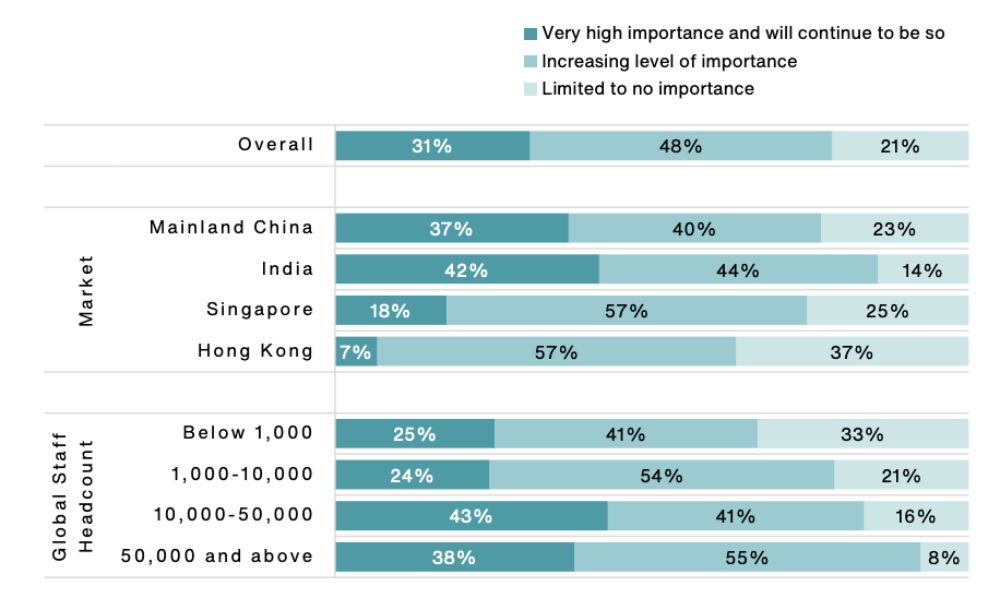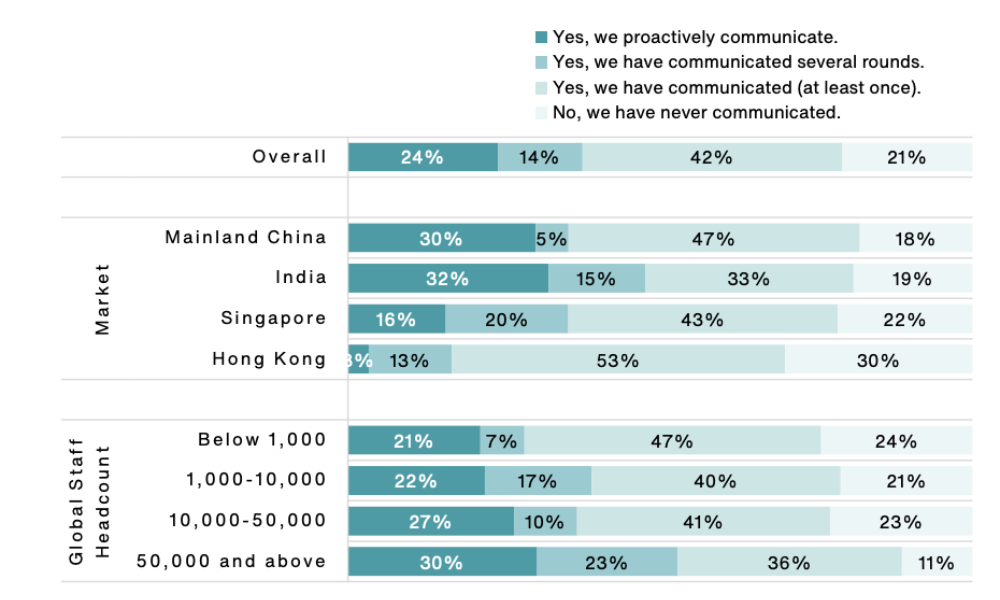
Nearly four in five organisations rate pay transparency as important: report

Organisations in Asia are taking a "cautious approach" to pay transparency despite a majority of them believing that it is important, according to a new survey.
Aon's poll among over 350 organisations in Asia found that 48% believe pay transparency has an increasing level of importance in today's context, while 31% believe it has "very high importance."
Organisations in India are most likely to believe pay transparency is important (86%), according to the survey, followed by Mainland China (77%) and Singapore (75%).

Source: Aon's 2023-2024 Asia Pay Equity Survey Report
"Despite the rising trend toward pay transparency, most organisations are taking a cautious approach," the report read.
In fact, it found that only 24% of organisations have proactively disclosed some aspect of pay-related matters, while 56% said they have communicated pay-related matters at least once.

Source: Aon's 2023-2024 Asia Pay Equity Survey Report
Current drivers of pay transparency practices in Asia include regulation and compliance (72%), company's diversity, equity, and inclusion policy (58%), as well as peer practices (38%).
The findings come amid the widespread introduction of workplace policies and even legislation on pay transparency across the world.
Peter Zhang, partner and head of Talent Solutions for Aon in Asia Pacific, said the trends in pay transparency indicate that these regulations will catch up in Asia, with most organisations likely to be transparency about pay soon.
"Forward-looking organisations in Asia are therefore not waiting for regulations to catch up but taking a proactive approach to pay transparency," Zhang said in a statement.
"While embarking on this journey, they are deciding on the degree and extent of pay transparency based on drivers such as their DEIB policy, peer practices, local market requirements and practices of their global headquarters."
Aon's 2023-2024 Asia Pay Equity Survey Report, which surveyed over 350 organisations across 13 locations in Asia, also looked into organisations' pay equity practices.